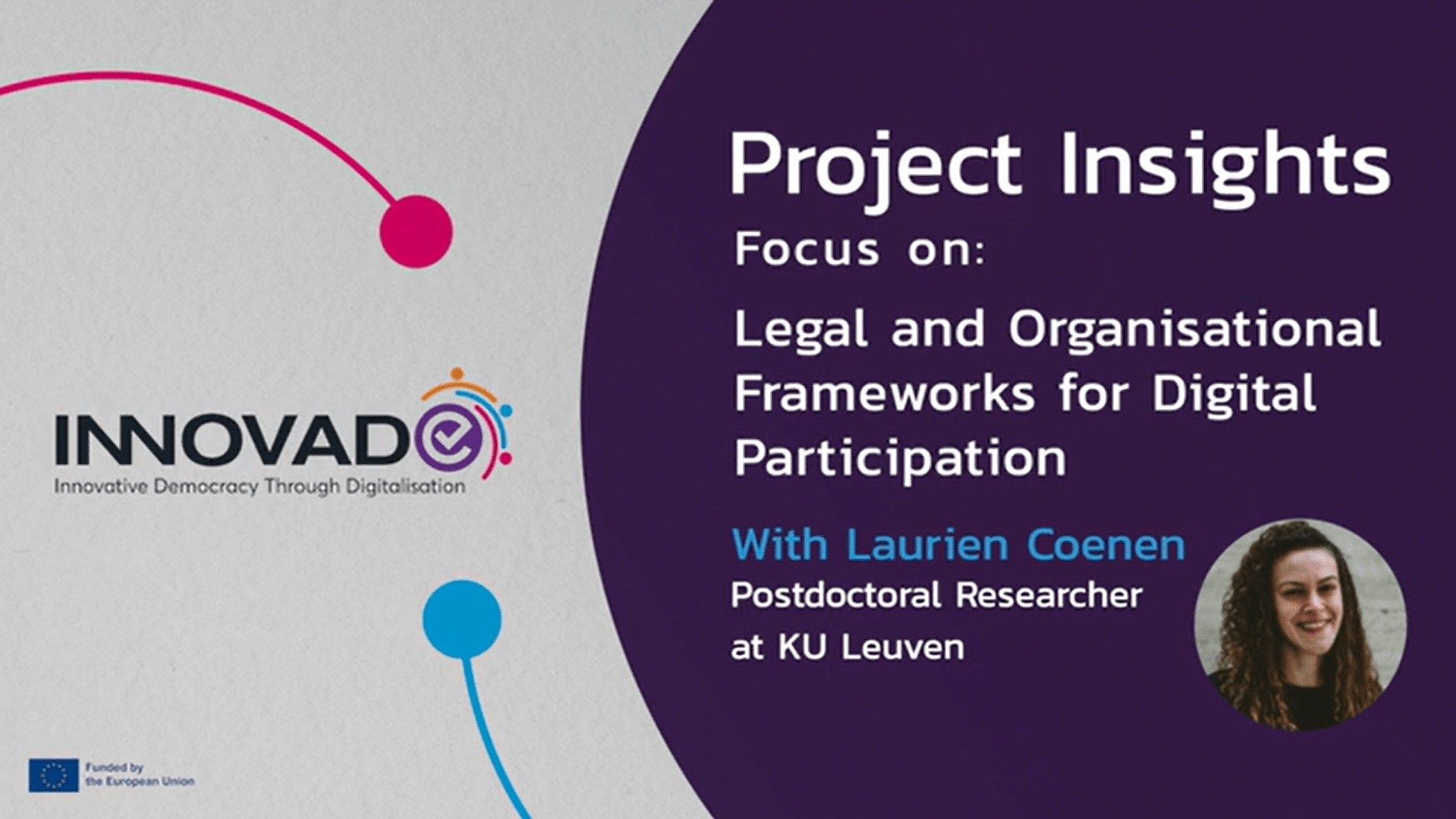
Establishing the Parameters for Digital Democracy
As the part of Work Package 3, Laurien focuses on identifying the essential considerations required to build sustainable digital democracy systems:
"The work package is titled Advancing the State of the Art and Building an Optimum for a Digital Democracy in which we'll be looking at legal aspects, organisational aspects, infrastructure, but also communication and cooperation strategies, as well as considerations in terms of data privacy, data protection, data safety."
This comprehensive approach aims to address the full spectrum of requirements for digital democracy platforms:
"In order to set up and maintain these flourishing digital democracies to be used now, but also in the future. What should we consider? What are potential pitfalls?"
Balancing Implementation and Inclusivity
Laurien identifies two critical priorities that will guide the development of INNOVADE's digital democracy tools:
"Essential priorities, I think, are definitely to keep it feasible because, of course, there's a lot of legislation out there. It should be implementable. If it's not implementable, it won't work or it won't pass. That's definitely one thing."
Equally important is ensuring that the tools developed are accessible to all potential users:
"Another thing is probably equal access or equity. So making sure that all stakeholders are able to involve to the full capacity. If that's not possible, then there might be an imbalance in these digital democracies as well."
Bridging Technical and Social Science Perspectives
A key challenge in the project involves integrating different disciplinary approaches to create practical solutions:
"Everything has to do with communication as well. So it's not only the content of one of the tasks within work package three, but it will also be a part of the actual collaboration between the work packages. [...] A part has to do with, of course, a background in social sciences and looking for the social science perspective or humanities perspective, whereas there's also a very technical component to it."
This interdisciplinary collaboration is essential for developing tools that will be useful for governmental organisations:
"Learning from each other's experiences, I think, and also always making sure that there's this practical translation will be a very important part to make this as usable and as applicable as possible for the governmental and semi-governmental organisations that will be using the toolkit."
Building on Previous Participation Research
Laurien brings valuable experience to the project while also embracing the opportunity to develop new expertise:
"The projects I've been doing in the past mainly focused on citizen participation. Looking at the digital side, but also like the analog side of it. And here we'll have this unique focus on digital. So allow us to go more in depth and then work on specific things more elaborately."
This project also offers opportunities for knowledge exchange between disciplines:
"I'm sure I'll learn a couple of things when it comes to the technological side, because of course I have a background in humanities. So that's something I'd love to gain from this. And also take with me to the colleagues who are not working on these digital topics, but who are involved or work around citizen participation."
Laurien's work shows how important it is to create digital democracy tools that work well technically, follow the regulations, fit into organizations easily, and can be used by everyone, no matter how comfortable they are with technology.
For further information on the INNOVADE project and its initiatives, you can follow us on BlueSky and LinkedIn